Projects and Activities
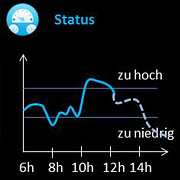 I coordinated the collaborative research project GlycoRec:
We aim to support patients with diabetes through intelligent support on mobile devices
and smartwatches. It is funded by the
Federal Ministry of Education and Research
under the Adaptive
Learning Systems
initiative. Project duration: 01/2015 to 12/2016; funding approx.: 1.44m Euro
I coordinated the collaborative research project GlycoRec:
We aim to support patients with diabetes through intelligent support on mobile devices
and smartwatches. It is funded by the
Federal Ministry of Education and Research
under the Adaptive
Learning Systems
initiative. Project duration: 01/2015 to 12/2016; funding approx.: 1.44m Euro
 I was member of the the management committee of TwinTide:
Towards the Integration of Transectorial IT Design and Evaluation.
TwinTide is a European network of leading user experience researchers
funded under the COST
programme. Its main objective is to harmonise research and practice
on design and evaluation methodologies for computing artefacts, across
sectors and disciplines.
I was member of the the management committee of TwinTide:
Towards the Integration of Transectorial IT Design and Evaluation.
TwinTide is a European network of leading user experience researchers
funded under the COST
programme. Its main objective is to harmonise research and practice
on design and evaluation methodologies for computing artefacts, across
sectors and disciplines.
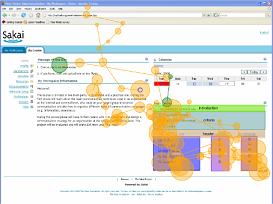 Until September 2013, I was Principal Investigator of the National
e-Learning Laboratory
(NELL). NELL is a usability lab tailored to the specific purpose of
researching on-line media and on-line learning. It is an environment where
learners and teachers are studied interacting with on-line resources and
tools in order to either measure and analyse learning behaviour or to
evaluate the tool's quality, including performance (learning gain),
efficiency, effectiveness, usability and learning experience. The
laboratory provides facilities for up to four learners that can be
observed simultaneously through a variety of cameras, microphones,
screen-recorders and keyboard logs. It also features an eye-tracker and a
specialised set of software that can record and (semi-) automatically
analyse these data streams. The lab can be used both for individual
learner sessions as well as for collaborative settings where interaction
between learners is monitored. Our blog
describes some of the
projects we have done.
Until September 2013, I was Principal Investigator of the National
e-Learning Laboratory
(NELL). NELL is a usability lab tailored to the specific purpose of
researching on-line media and on-line learning. It is an environment where
learners and teachers are studied interacting with on-line resources and
tools in order to either measure and analyse learning behaviour or to
evaluate the tool's quality, including performance (learning gain),
efficiency, effectiveness, usability and learning experience. The
laboratory provides facilities for up to four learners that can be
observed simultaneously through a variety of cameras, microphones,
screen-recorders and keyboard logs. It also features an eye-tracker and a
specialised set of software that can record and (semi-) automatically
analyse these data streams. The lab can be used both for individual
learner sessions as well as for collaborative settings where interaction
between learners is monitored. Our blog
describes some of the
projects we have done.
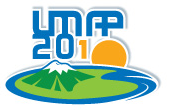 Judith Masthoff
(Aberdeen, UK), Alexandros Paramythis
(Linz, Austria) and myself gave a tutorial at
UMAP2010
on the Evaluation of
Adaptive Systems.
Judith Masthoff
(Aberdeen, UK), Alexandros Paramythis
(Linz, Austria) and myself gave a tutorial at
UMAP2010
on the Evaluation of
Adaptive Systems.
 The Adaptive Hypermedia conferences (since 2009 called UMAP)
are the major forums for the scientific exchange and presentation of
research on adaptive hypermedia and adaptive Web-based systems. The fifth
edition of the conference, AH2008, took place
in Hannover, Germany. I was serving as publicity chair for this
conference.
The Adaptive Hypermedia conferences (since 2009 called UMAP)
are the major forums for the scientific exchange and presentation of
research on adaptive hypermedia and adaptive Web-based systems. The fifth
edition of the conference, AH2008, took place
in Hannover, Germany. I was serving as publicity chair for this
conference.
 Judith Masthoff
(Aberdeen, UK), Alexandros Paramythis (Linz, Austria) and myself gave a tutorial at UM2007 on Formative Evaluation
Methods for Adaptive Systems.
Judith Masthoff
(Aberdeen, UK), Alexandros Paramythis (Linz, Austria) and myself gave a tutorial at UM2007 on Formative Evaluation
Methods for Adaptive Systems.
 In ALS we
provided the technological means through which lack of (or limited amounts
of) face-to-face contact between instructors and learners, as well as
amongst learners can be partially compensated for. So in fact, this
project sucessfully brought together adaptive learning techniques and
on-line collaboration.
In ALS we
provided the technological means through which lack of (or limited amounts
of) face-to-face contact between instructors and learners, as well as
amongst learners can be partially compensated for. So in fact, this
project sucessfully brought together adaptive learning techniques and
on-line collaboration.
 In Up2UML we
developed new content and training material for UML2. By using guidebooks,
trainers can use this content in a flexible way for blended
learning.
In Up2UML we
developed new content and training material for UML2. By using guidebooks,
trainers can use this content in a flexible way for blended
learning.
 Together with Alexandros Paramythis (Linz, Austria) I
organized two more workshops on the
evaluation of adaptive systems
at UM2003 and at AH2004 again. The
proceedings of all
three evaluation workshops are online.
Together with Alexandros Paramythis (Linz, Austria) I
organized two more workshops on the
evaluation of adaptive systems
at UM2003 and at AH2004 again. The
proceedings of all
three evaluation workshops are online.
Anna Strasser, Sandra Riedewald, and myself wrote a report on the Conference of the German Cognitive Society (KogWis01) in Leipzig. It explores the degree of interdisciplinarity of Cognitive Science in Germany. It is also available as pdf document and will appear in the Journal of the German Cognitive Society Kognitionswissenschaft. You may want to compare these results to a similar report on interdisciplinarity at KogWis96 by Anthony Jameson.
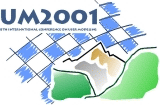 Together with Gerhard Weber and David
Chin, I have organized a workshop on empirical evaluations of
adaptive systems in conjunction with UM2001 in Sonthofen. The proceedings
are available online.
Together with Gerhard Weber and David
Chin, I have organized a workshop on empirical evaluations of
adaptive systems in conjunction with UM2001 in Sonthofen. The proceedings
are available online.
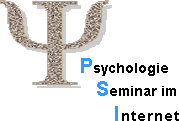 I have been a member of the projects
PAEDPSY
and
PSI
which developed adaptive
interactive
learning courses for pedagogical psychology, including
topics like problem solving, social perception, Piaget's developmental
psychology, and the diagnostics of pupils (all courses currently in German
only, sorry, we are working on this issue). These courses are part of the
curriculum for all students at the University of Education and thousands
(!) of students have been working with this interactive
courseware.
I have been a member of the projects
PAEDPSY
and
PSI
which developed adaptive
interactive
learning courses for pedagogical psychology, including
topics like problem solving, social perception, Piaget's developmental
psychology, and the diagnostics of pupils (all courses currently in German
only, sorry, we are working on this issue). These courses are part of the
curriculum for all students at the University of Education and thousands
(!) of students have been working with this interactive
courseware.
 All these courses are based on the authoring system
NetCoach
(website in German only) developed by Gerhard
Weber. A variety of
other NetCoach-courses, as well as a tutorial and a manual, is offered
for free by the University of Education. The NetCoach server is also
available for Linux now.
All these courses are based on the authoring system
NetCoach
(website in German only) developed by Gerhard
Weber. A variety of
other NetCoach-courses, as well as a tutorial and a manual, is offered
for free by the University of Education. The NetCoach server is also
available for Linux now.
 For my PhD I have been funded by the Graduate
Programme Human and Machine Intelligence
at the
Albert-Ludwigs-University Freiburg. This Graduate school has an interdisciplinary research
programme which combines work from the areas of psychology, computer
science and linguistics from a cognitive science
perspective.
For my PhD I have been funded by the Graduate
Programme Human and Machine Intelligence
at the
Albert-Ludwigs-University Freiburg. This Graduate school has an interdisciplinary research
programme which combines work from the areas of psychology, computer
science and linguistics from a cognitive science
perspective.
